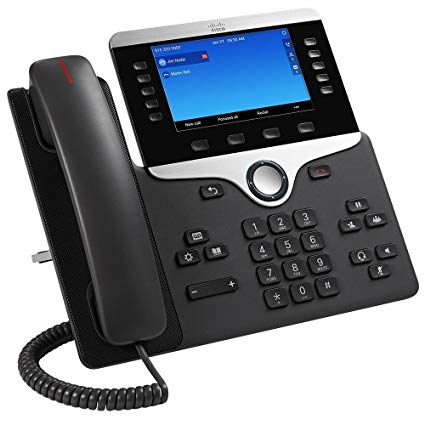
An overview of analog and VoIP phone systems, how they work, the differences between the two, and the advantages and disadvantages of using VoIP over traditional, analog phone systems.
The two phone systems most apparent in companies today are traditional analog phone systems and VoIP (Voice over Internet Protocol) phone systems. Typically, VoIP systems are the better choice for companies, especially companies relying heavily on telecommunications to conduct business. However, occasionally, there are scenarios where an analog phone system may be preferred. Through the discussion of analog and VoIP phone systems, the environments best suited for each will be understood.
An analog phone system is the traditional landline phone service that establishes point-to-point connectivity between subscribers, allowing bidirectional communication with each other. An analog phone line is a voice circuit made from copper wire that transmits voice signals as electrical pulses. This copper line runs from your local telecom providers central office to your business/home location. The telecom providers central office hosts telephone switching equipment which connects subscribers to the PSTN (Public Switched Telephone Network). An analog phone line is also known as a POTS (Plain Old Telephone Service) line.
Analog phone systems are limited in many ways, one phone number is associated with one line and one line can only support one conversation at a time. Moreover, analog systems are limited to basic features like hold, mute, redial, speed dial, and call transferring. However, analog phone systems are more reliable when compared to VoIP phone systems because they are unaffected by bandwidth and/or power outages. Analog phone systems should be considered for homes and small to medium sized businesses that require, at most, up to 15 incoming lines. These analog systems are inexpensive and easy to set up, however, this type of system cannot be scaled up or down easily, things like changing extension location requires professional rewiring.
VoIP (Voice over Internet Protocol) telephone systems run on an IP network through your own IP address or internet combining voice and data on one secured network. VoIP phone systems work by converting analog phone signals into digital signals that can be delivered over the Internet from one business to another. VoIP phone systems use PSN (Packet Switching Network) technology where voice signals received in small data packets are transmitted in a sequential manner so voice signal can be generated at the receiving end. When compared to analog phone systems, VoIP is typically seen as the better option for a business and is essential for larger businesses. VoIP disadvantages include bandwidth utilization and power/internet outages. Bandwidth is shared amongst computers and phones which affects the quality of service provided. Also, VoIP is susceptible to power outages and/or internet outages, if power goes out or internet goes down, your phones go down with it.
However, the advantages gained by VoIP definitely outweigh the disadvantages. VoIP systems have the same features as analog phones and advanced features of its own including Virtual auto attendants, Voicemail, Call forwarding, Conference calling and even CRM integration. VoIP’s Initial investment is expensive but call rates using VoIP are lower or free because it uses the internet. VoIP phone system maintenance can be done remotely by administrators, scalability is better because upgrades are mostly software based, system mobility is much better; moving a phone is literally as easy as moving the location of the device, the phone number (and extension) automatically follows. VoIP phone systems are best suited for larger businesses but should still be highly considered by SMBs, especially if the company is constantly growing.
Now that you know the two most prevalent phone systems that exist today, you can better identify the best phone system suited to your current and/or new business needs. If you need any help on finding your company’s best phone system option, you want to compare rates, or just want to explore the topic some more, we are always happy to answer any questions.

Recent Comments